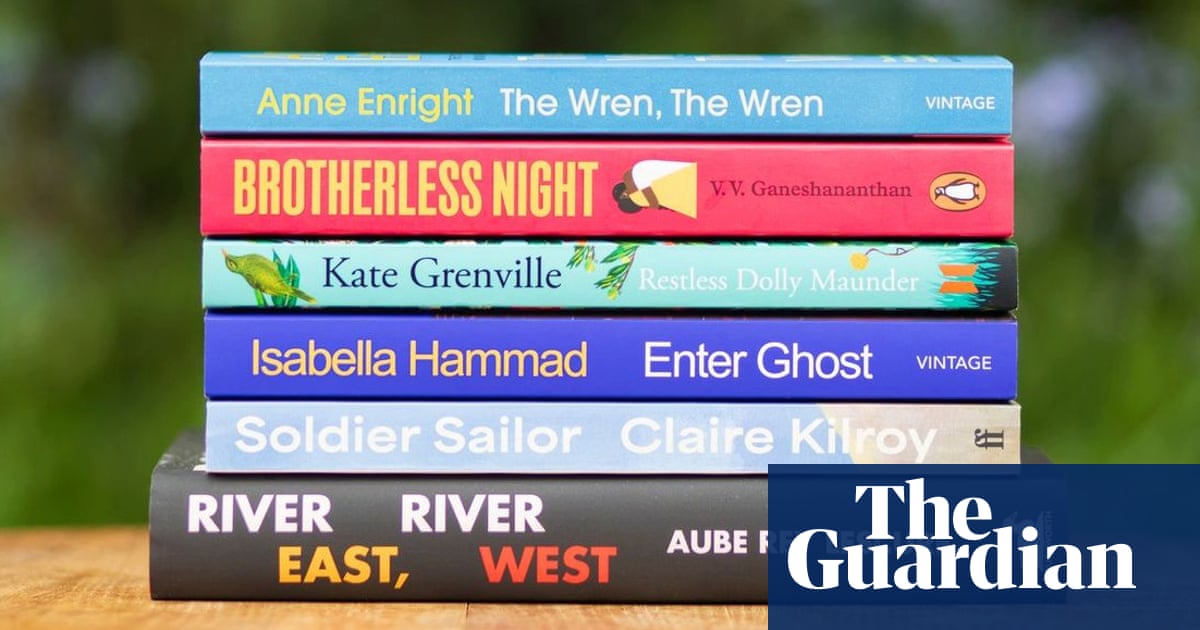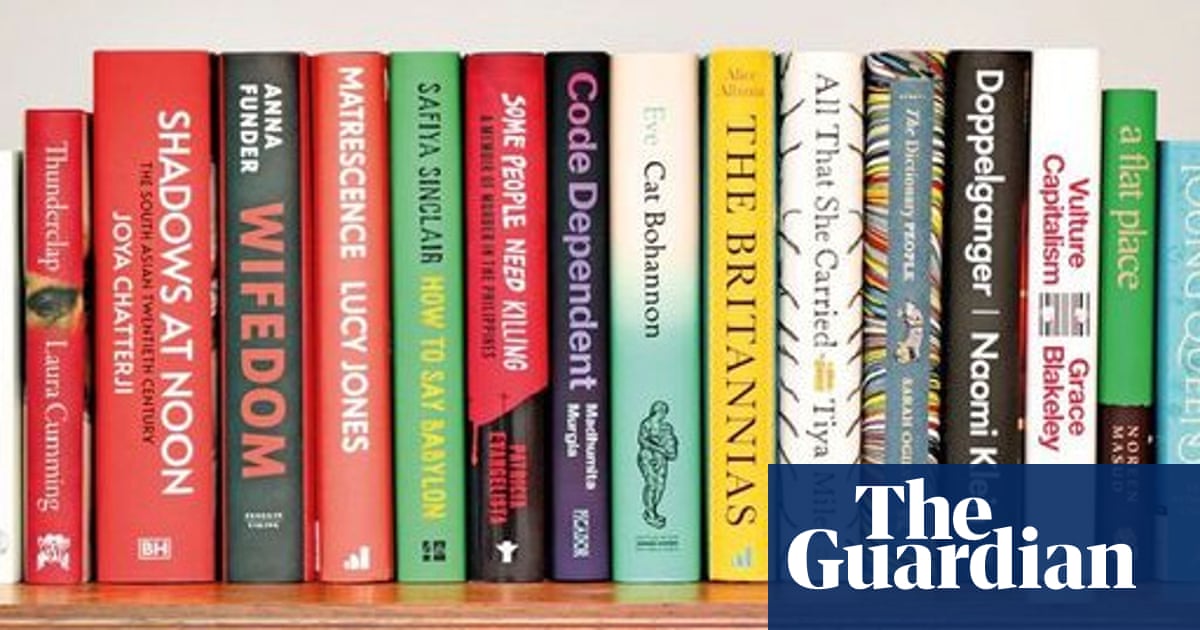
Anne Enright, Kate Grenville and Isabella Hammad are among the contenders for this year’s Women’s prize for fiction, on a shortlist that features migration as a recurring theme.
French-Chinese-American writer Aube Rey Lescure was shortlisted for River East, River West, a reversal of the east-to-west immigrant narrative, set against China’s economic boom. Lescure is the only debut writer on this year’s shortlist, despite the fact that debuts made up half of the longlist.
British writer Hammad, whose father is Palestinian, was shortlisted for Enter Ghost, which follows actor Sonia as she travels from London to Haifa to visit her sister and joins an Arabic production of Hamlet in the West Bank. The novel “takes you deep inside the protagonist’s experience while opening a wider window on to life for Palestinians and their exhausting day-to-day struggles”, wrote Holly Williams in the Guardian.
American writer VV Ganeshananthan, who is of Ilankai Tamil descent, was shortlisted for Brotherless Night, about a girl born in Jaffna, Sri Lanka, who dreams of becoming a doctor before civil war subsumes the country and those around her are swept up in violent political ideologies. “A powerful book that has the intimacy of memoir, the range and ambition of an epic, and tells a truly unforgettable story about the Sri Lankan civil war,” said judge and author Ayọ̀bámi Adébáyọ̀.
The winner of the prize, worth £30,000, will be announced at a ceremony in London on 13 June, alongside the announcement of the inaugural Women’s prize for nonfiction winner.
The shortlist “features six brilliant, thought-provoking and spellbinding novels that between them capture an enormous breadth of the human experience,” said judging chair and author Monica Ali. “Readers will be captivated by the characters, the luminous writing and the exquisite storytelling. Each book is gloriously compelling and inventive and lingers in the heart and mind long after the final page.”
Australian author Grenville, who won the Women’s prize – then called the Orange prize – in 2001 for The Idea of Perfection, has been shortlisted for Restless Dolly Maunder, the imagined story of Grenville’s maternal grandmother, born at the end of the 19th century, and her search for independence. “The writing sparkles with Grenville’s gift for transcendently clear imagery,” wrote Kirsten Tranter in her Guardian review. The book is “a work of history, biography, story and memoir, all fused into a novel that suggests the great potential of literary art as redeemer, healer and pathway to understanding”.
Enright’s shortlisted novel The Wren, The Wren is about the relationship between the daughter and granddaughter of a deceased poet. “All the vividness of characterisation that her readers have come to expect is here, and so is the wry, almost surreal wit with which she has always laced her acute observations of human folly,” wrote Fintan O’Toole in the Guardian.
Fellow Irish writer Claire Kilroy also made the list with Soldier Sailor, an account of early motherhood in the form of an internal monologue addressed from mother to son. Kilroy’s “first novel in 10 years is a whole-body experience”, wrote Sarah Crown in the Guardian. “The novel is brief but utterly remorseless – it comes at you full-throttle, as if delivered on a single breath.”
Joining Ali and Adébáyọ̀ on the judging panel were author and illustrator Laura Dockrill, actor Indira Varma, and presenter and author Anna Whitehouse.
The 10 longlisted titles that did not make the shortlist were Hangman by Maya Binyam, In Defence of the Act by Effie Black, And Then She Fell by Alicia Elliott, The Maiden by Kate Foster, 8 Lives of a Century-Old Trickster by Mirinae Lee, The Blue, Beautiful World by Karen Lord, Western Lane by Chetna Maroo, Nightbloom by Peace Adzo Medie, Ordinary Human Failings by Megan Nolan and A Trace of Sun by Pam Williams.
Recent winners of the prize include Ruth Ozeki for The Book of Form and Emptiness, Susanna Clarke for Piranesi and Maggie O’Farrell for Hamnet. In 2023, Barbara Kingsolver won the award for Demon Copperhead, which also won the Pulitzer prize for fiction.
To browse all of the books on the Women’s prize for fiction 2024 shortlist visit guardianbookshop.com. Delivery charges may apply.












